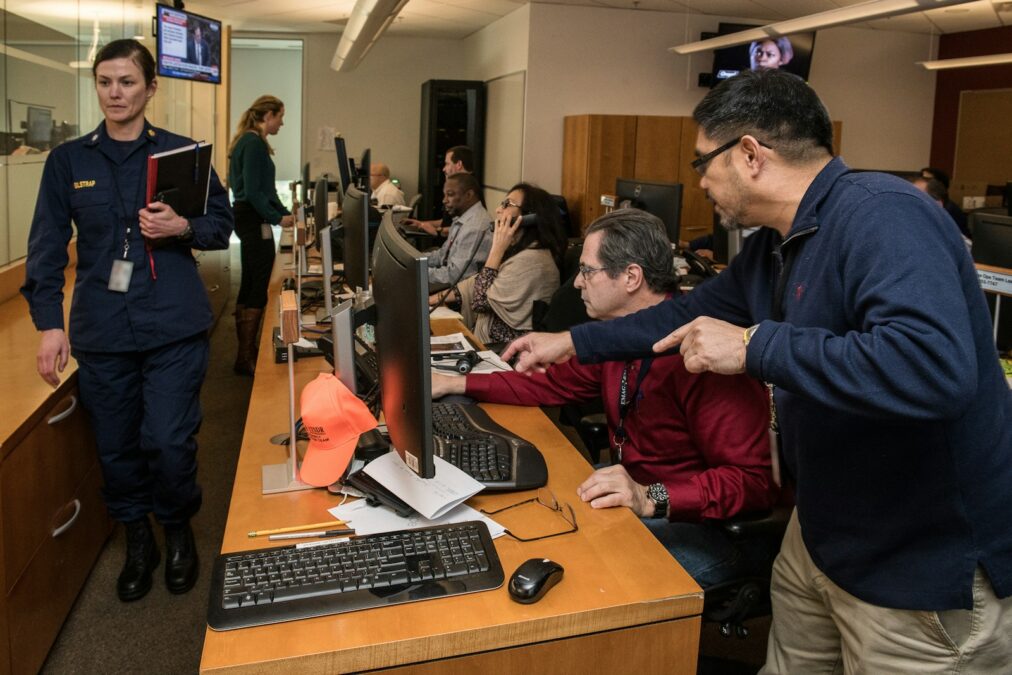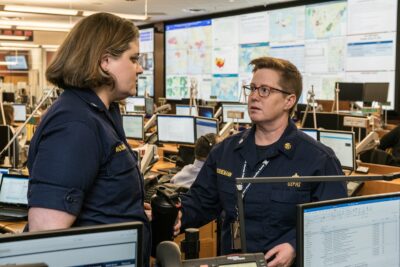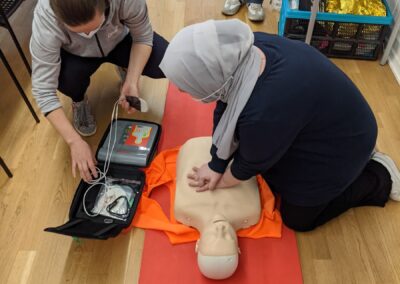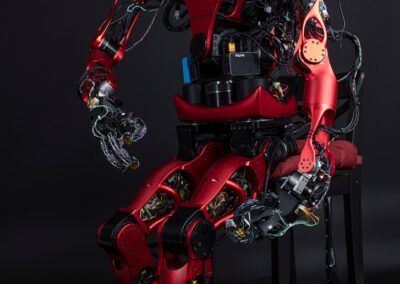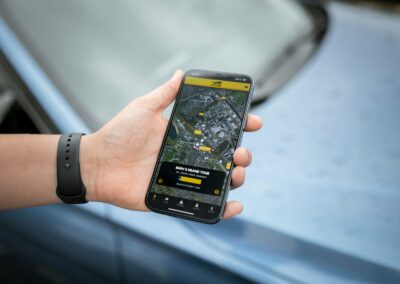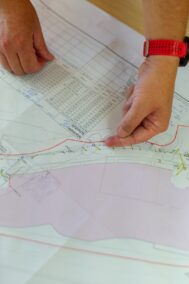The Role of AI in Emergency Response
Artificial Intelligence (AI) is revolutionizing the way emergency response strategies are developed and implemented in Saudi Arabia and the UAE. By leveraging advanced algorithms and data analytics, AI enables emergency services to respond faster and more effectively to crises, ultimately saving lives and minimizing damage. From natural disasters to medical emergencies, AI-powered systems can analyze vast amounts of data in real-time, providing critical insights that enable authorities to make informed decisions and deploy resources where they are needed most. This article explores the various ways in which AI is transforming emergency response strategies in the region, highlighting the benefits and challenges associated with this technology.
Enhanced Situational Awareness
One of the key advantages of AI in emergency response is its ability to enhance situational awareness. Through the integration of sensors, cameras, and other IoT devices, AI-powered systems can collect and analyze data from the environment in real-time. For example, in the event of a natural disaster such as a hurricane or earthquake, AI algorithms can process data from weather stations, satellite imagery, and seismic sensors to assess the severity of the situation and predict its impact on affected areas. This enables emergency services to proactively plan and allocate resources, such as deploying search and rescue teams, setting up evacuation centers, and coordinating humanitarian aid efforts. By providing accurate and up-to-date information, AI helps authorities make informed decisions that save both time and lives.
Optimized Resource Allocation
Another benefit of AI in emergency response is its ability to optimize resource allocation. During a crisis, resources such as medical supplies, personnel, and equipment are often scarce and need to be distributed efficiently. AI-powered algorithms can analyze data on population density, infrastructure, and transportation networks to identify areas of high demand and allocate resources accordingly. For example, in the case of a large-scale medical emergency, AI can help hospitals and emergency services prioritize patients based on the severity of their condition, ensuring that those in critical need receive timely care. Similarly, AI can assist in the coordination of logistics, such as routing emergency vehicles and managing traffic flow to minimize response times. By optimizing resource allocation, AI enables emergency services to make the most of limited resources and respond more effectively to emergencies.
Addressing Challenges and Ensuring Accessibility
While AI offers numerous benefits in emergency response, there are also challenges that need to be addressed. One such challenge is ensuring the accessibility of AI-powered systems, particularly in remote or underserved areas where infrastructure may be lacking. To overcome this challenge, governments and organizations need to invest in building the necessary infrastructure and providing training to local communities on how to use AI technologies effectively. Additionally, there is a need to address concerns related to data privacy and security, particularly when sensitive information is being collected and analyzed in real-time. By implementing robust data protection measures and ensuring transparency in the use of AI, governments can build trust among citizens and ensure that AI-powered emergency response systems are used responsibly and ethically.
The Importance of AI in Emergency Response
AI plays a crucial role in improving the speed and efficiency of emergency response efforts. In situations where every second counts, such as during natural disasters or medical emergencies, the ability to quickly gather, analyze, and act on data can mean the difference between life and death. AI-powered systems can process vast amounts of information in real-time, allowing emergency responders to make informed decisions and deploy resources where they are needed most. For example, in the aftermath of a hurricane, AI algorithms can analyze satellite imagery to assess the extent of damage and prioritize areas for search and rescue operations. Similarly, in a medical emergency, AI can help healthcare providers triage patients based on the severity of their condition, ensuring that those in critical need receive prompt attention.
#AI #EmergencyResponse #SaudiArabia #UAE #ArtificialIntelligence #DisasterManagement #DataAnalytics #SituationalAwareness #ResourceAllocation #Infrastructure #Accessibility

